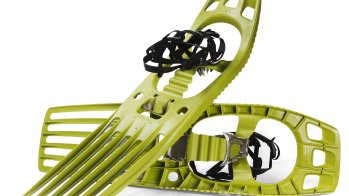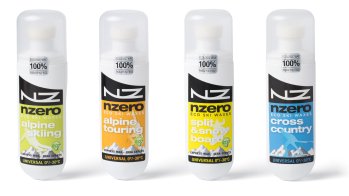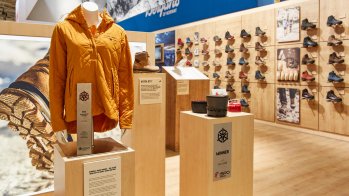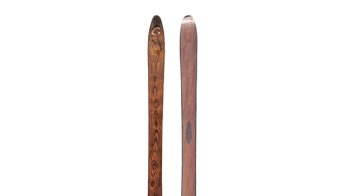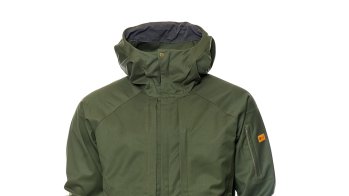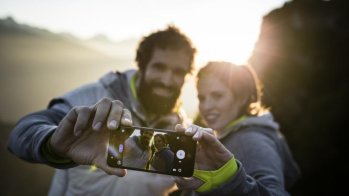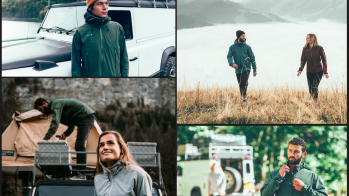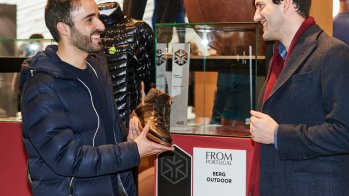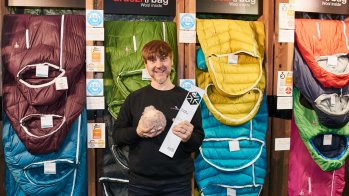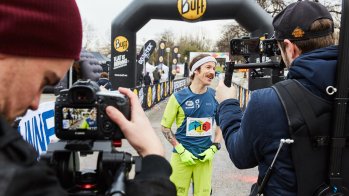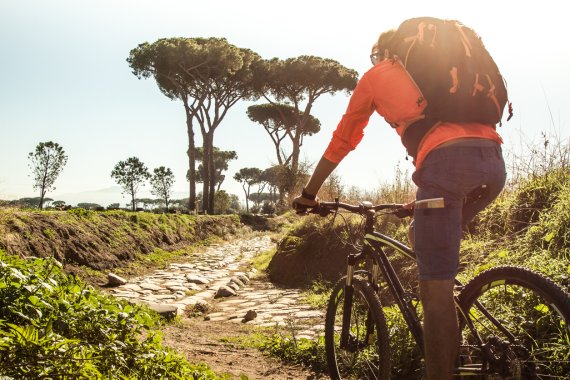
He is still new in his job: On the 1st of January 2019, Arne Strate started as Managing Director of the European Outdoor Group (EOG), the association of many major outdoor brands. But in the meantime, Arne Strate has gotten well acquainted - he also already knows the EOG: from 2016 to 2018, he worked for the association as Head of Marketing and Business Development. Nevertheless, the new position brought changes and the need to adapt: "I was new in the traditional outdoor industry and had to make myself known."
His background is the board sports and action sports area. Before becoming Head of Marketing and Business Development at EOG in 2016, he sold snowboards and worked in the marketing for Volcom and Reef. From this time he knew some production sites of outdoor companies. As EOG Managing Director, he represents the merger at the first OutDoor by ISPO (June 30th to July 3rd, 2019) in Munich.
Prior to the trade fair, ISPO, together with the Rheingold Institute, conducted a study entitled "Outdoor is a basic human need". The study deals with the attitudes and wishes of consumers towards the topic of outdoor. The result was also a free whitepaper for retailers and the industry.
ISPO.com: Mr Strate, how did you as an outdoor expert, so to speak, perceive the findings of the study? Was there something new for you, too?
Arne Strate: Actually, yes. The study confirmed in a very positive way what we already found for the "It's great out there" coalition. In 2017, we founded this coalition with our own members and our own financial means. It makes sure that people are introduced to sports in nature in a sustainable way. Of course, actives are part of it. But the main focus is on people who don't do anything yet. Sport in the outdoors is the best thing you can do against the serious diseases associated with modern society.

So you already knew that. But what really surprised you?
Basically, I liked the psychological aspect very much. We've been doing more hands-on research, like why people do not go outdoors. The Rheingold study has dug much deeper. And at the end of the day one thing is certain: even if people don't do any sports at all, they are open to being active in nature.
We have also found out that we speak two different languages. When we advertise as an outdoor industry with pictures of people standing alone on the mountain top with an ice axe, all people who are not active on that level turn around. They don't care, it's too extreme. But when we show them pictures of a family riding a bicycle through the park, it appeals to them.
What does this mean for the outdoor industry? Do you want to change advertising strategies?
We don't want to change but complement them. Basically, the industry must consider if its priorities are correct. Without nature there is no outdoor business and without active people there is no outdoor business. Then why do only very few companies have a sustainability department? Why doesn't a single company have an activation-of-population department? They don't exist. That's what marketing does. But it's supposed to be the other way around: These things need to get attention first and then you can start designing products and calling customers.
But if you look at the problem in a completely unbiased way, then it should actually be the other way around: These things should get the attention first and actually you can only start designing products and calling customers when this basis is secured. Nature and active people are too often taken for granted by our industry, because both have always existed. But this is just changing worryingly. Nature literally has to fight for survival in many places and according to the latest European Commission survey 46% of the EU population do nothing at all when it comes to sport, so they are completely inactive.
What are the consequences for the companies if they close their eyes to this?
Those who do not now have CSR and sustainability, nature conservation and activation of the population at the top of their agenda will be sooner or later left out. I can't say whether in two or five years, but it will be pretty fast. I expect more change in the next 5 years than in the last 20. CSR and sustainability are no longer hippie things you do because it looks good. It's a business case. If you bet on it now, and take a bit of responsibility, it won't double sales in 2019, but it can help prevent sales from halving in 2022.
The customer is well aware that a reasonably manufactured jacket costs a few euros more than one made with illegal chemicals or child labour. The jacket does not cost four times as much, but 20 or 30 euros more at a selling price of 200 euros.
The study was also aimed at the consumer. Isn't the industry becoming too dependent on the consumer?
That's not in our power. We are 100 percent dependent on consumers. If they say: 'Oh, outdoor is completely out, I'd rather do squash or indoor sports.' Then that's it with our outdoor industry. Of course there is never such an extreme, but overlaps and mergers. The aim is to identify and cover the needs of consumers in the outdoor sector. So we need to listen carefully to what they want.
This is also the reason why we at OutDoor by ISPO are, by definition, oriented towards the consumer. Because only if we reflect at the fair what the consumer is doing, it is also interesting for the retailer. More than 60 percent of the visitors are independent retailers. If they say that the fair is no longer relevant for us, then the fair is over.
The Most Sustainable Sports Brands in Pictures
What else do you expect at OutDoor by ISPO from the change of location to Munich?
The most important thing I will take home with me is what you can measure the worst: the subjective feeling, the atmosphere in the halls. Because when the industry comes together, it's definitely not to write orders. These days are long gone and everyone knows that. We get together to see what's new in the market, to exchange ideas and come back with a motivated team.
If we manage this, then it will be a top event. Also because we now look beyond our own horizons and, for example, see what is happening in paddling and other outdoor-related industries. We call that Outdoor+. Because we all together equip the consumer with what he needs in order to have the best possible outdoor experience in nature. This can give the industry momentum to move into the future, because in my opinion the times of solitary living are over. That brings us together and we should therefore tackle the major challenges facing the industry together. Global problems, and that is what we are talking about here, cannot be solved by anyone alone.
ISPO Munich 2019 in Pictures
You are the future of EOG. What is your new role as Secretary General?
Besides the one million e-mails all day? (laughs) I work at the behest of our board. That is, we discuss on the board the direction in which the sector is developing and where it could develop, what our members need, what problems we might face and what the solutions might be. Then it's up to me and my team to implement them: whether it's market analyses or events, for example the European Outdoor Summit, or our program during ISPO Munich and OutDoor by ISPO.
We have also introduced the EOG Sustainability Charter, which we want to make the basis for a common, more sustainable future in the outdoor industry for and with our members and beyond. About 80 percent of our members are already involved. Even the entire Scandinavian Outdoor Group has already signed up, regardless of whether it is an EOG member or not. Here we are trying to take the first important step towards raising the outdoor industry to a level of responsibility and sustainability where we no longer have to compete with those who produce a black waterproof jacket for 19.95 euros under questionable conditions.
There are also project groups, such as the project against disposable plastics in the outdoor industry. These groups help to solve problems in the industry at the grassroots level. Because it is the right thing here to take responsibility for the value chain and, of course, also to gain a competitive advantage, you have to say that quite frankly.
These are quite demanding goals. What is most important to you personally?
To share the outdoor experience with a wider audience. And in a way that is compatible with nature. It's been part of my job for the last three years to set up the 'It's great out there' coalition in Brussels with the aim of introducing people to outdoor sports. And mainly the people who don't do anything yet. As I said, it is a fact that 46 percent of Europeans today do nothing at all. No hiking, no walking, nothing.
Inactivity has now replaced smoking, with fatal consequences. One only needs to think further: the costs for the health systems are already going through the roof. If one or two more generations follow now who do nothing, then we will reach the limits of what society can bear. That is really relevant. The outdoor industry manufactures the equipment to experience nature outdoors intensively, unfiltered and as safely as possible, and we should also be aware of our responsibility to ensure that outdoor activity, of whatever kind, can play a large part in making our society as a whole better.
Can cooperation within the EOG also help?
Yes. I've never seen an industry that works together like this before. And that inspires, of course. People all come together. Normally you would say, what should all the outdoor brands work together for? They are competitors!
The sticking point is the definition of our work: Before brand X competes against brand Y in the market, before one product competes against the other, we work on the things that all tackle together. Market figures, events, Brussels connection to EC, materials research, sustainability work, etc. Brand names don't matter, it's democratic and everyone works together to solve problems that are too big for a brand alone.
When you were introduced, the official statement said you were toughly tested. What does that mean?
That was absolute hell (laughs). No, no... On the one hand, the job interview with John Jansen, Antje von Dewitz and Mark Held, my predecessor and current EOG president, was not a walk in the park. It was very detailed, very intense, and I was constantly drilling. It's also an important place, I don't blame anyone. But afterwards I just couldn't judge for myself whether it had done well. After the first confirmation "under reserve" I had to face some more challenges, probably because I am a little younger and because I have never been in such an exposed role before. During this time, I never knew where I stood. Until last autumn, the official decision was finally made that the board would entrust me with the job.
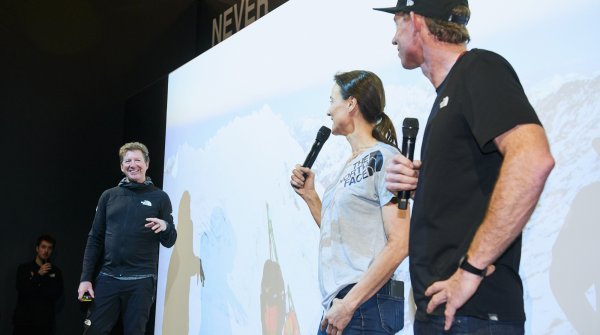
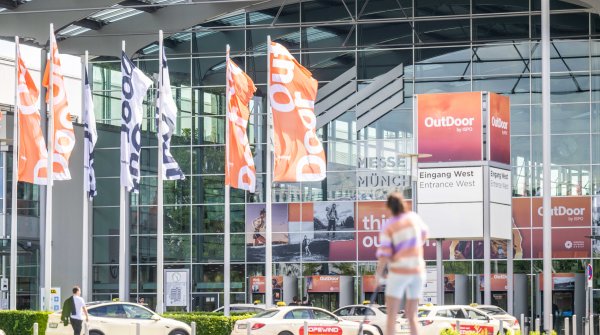 OutDoor by ISPOOutDoor in transition
OutDoor by ISPOOutDoor in transition
- Awards
- Mountain sports
- Bike
- Fitness
- Health
- ISPO Munich
- Running
- Brands
- Sustainability
- Olympia
- OutDoor
- Promotion
- Sports Business
- Textrends
- Triathlon
- Water sports
- Winter sports
- eSports
- SportsTech
- OutDoor by ISPO
- Heroes
- Transformation
- Sport Fashion
- Urban Culture
- Challenges of a CEO
- Trade fairs
- Sports
- Find the Balance
- Product reviews
- Newsletter Exclusive Area
- Magazine


